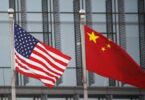Sergey Savchuk
The first frosts shackled puddles and mud not only in Russia: the crisp coolness in the mornings crept into Europe and immediately rang with resounding results. The German energy concern Uniper has told its Swedish partners that it is phasing out programs to build new nuclear reactors. This was announced on the air of the radio station Sveriges Radios Ekot by the speaker of the company George Oppermann.
Uniper is well known in Russia. First of all, by the fact that for many years it has been one of the key buyers of Russian gas, and therefore the mention of this name in tandem with nuclear generation facilities looks a bit strange for most. But this is only at first and superficial glance.
As you know, trading in hydrocarbons, especially Russian ones and especially under long-term contracts, where pleasant (which is clearly seen in the current period of spot instability) conditions, such as expected price fluctuations and ot-her force majeure, are prescribed, is a very profitable business. Therefore, the financial position of Uniper was very stable. So much so that at one time German power engineers bought out almost the entire nuclear cluster in Sweden. This, by the way, did not cause any complaints from either Bru-ssels or the Antimonopoly Committee. It is also im-possible to find publications that a private foreign company can use its exclusive position as leverage on an independent Sweden. Needless to say, a true miracle.
Uniper currently owns a controlling stake in the Oskarshamn (OKG) nuclear power plant, minority stakes in the Ringhals and Forsmark nuclear po-wer plants, and it also owns the oldest Swedish nuclear power plant, Barsebä-cksverket. The latter was decommissioned in the late 1990s, and Uniper assumed responsibility for dismantling the structures. It must be said that the German operator was not particularly in a hurry and to date only reported on the dismantling of power equipment in the first and second turbine halls of the nuclear power plant, that is, the turbine hall itself and the so-called containment are still intact and quite suitable for solving certain tasks.
The energy and financial hurricanes of 2022 did not bypass Sweden, where there was also a shortage of generation and an increase in its cost. Therefore, it is hardly surprising that just a month ago, the CEO of Barsebäck Kraft, a subsidiary of Uniper, let slip in one of his interviews: the nuclear power plant infrastructure will not be destroyed. Moreover, an energy cluster will be created on its basis, where, without a doubt, nuclear generation will also be represented. Simply put, the owners were going to create a new nuclear power plant here – at least using small modular reactors, as soon as this technology reaches an industrial level.
We must pay tribute to the German power engineers and their ability to make long-term forecasts. The fact is that all nuclear power plants in Sweden are of a fairly respectable age, and a successful “renovation” of the oldest station, Barsebäcks, would open up incredible prospects. On the one hand, ensuring the total dominance of Uniper in the Swedish electricity market, on the other hand, this would really allow us to talk about reducing the EU ‘s dependence on Russian energy supplies.
At the moment, in the pr-oduction system of the Sw-edish energy industry under the strict German leadership are: the third power u-nit of the OKG nuclear po-wer plant (launched in 19-85), the third and fourth reactors of the Ringhals nu-clear power plant (launched in 1981 and 1983), as well as three power units at the Forsmark nuclear power plant (included in the netw-ork between 1980 and 19-85). In the structure of the energy balance, the first st-ation holds a niche of se-ven, the second – 20, the third – 15 percent of electricity production. By simple calculations, we will get about 40 percent of the en-tire national generation, th-at is, Sweden can rightfully be called a nuclear country.
Naturally, with such proportions, Stockholm is extr-emely interested in updating its reactor fleet, the im-portance of which is especially evident at the slightest disruption in its operation. So, for example, on N-ovember 9, a certain failure occurred at the third power unit of the OKG nuclear power plant, which led to a loss of 1,400 megawatts of power, and this, in turn, practically de-energized the entire south of Sweden, for which the station is a key supplier. Against this background, is it any wonder that the country’s government viewed Uniper’s plans extremely favorably, openly hoping not only to strengthen its power supply, but actually become the greenest country in Europe.
Here you need to make a digression and explain a subtle point.
Uniper itself is unable to build a reactor. Most likely, the Germans, having rich experience as operators, expected to act as the main customer and investor in the construction, fortunately, we recall that until recently their financial situation quite allowed it. According to rumors that for some time circulated in the profile environment, they planned to transfer the contract for the construction of reactors to the French EDF, which positions itself as a company capable of fulfilling such an order. How close this is to reality is a topic for a separate discussion, we will just fix this fact, especially since we did not talk about other possible contractors.
Everything went perfectly smoothly until the start of the NWO and the voluntary-compulsory imposition of sanctions against Russia by Europe, and the nuclear energy sector was subjected to restrictive pressure almost earlier than the hydrocarbon production industry. Deliveries of Russian pipeline gas have been steadily declining, at some point Uniper reported a complete cessation of purchases. True, very soon information was made public about the record losses of the company, which amounted to $ 40 billion, after which even rumors spread about a possible bankruptcy. While corporate financiers are figuring out whether the company is able to pay off creditors, the head office is cutting costs as much as possible. It is known that Uniper, together with colleagues from another energy company Eon, will close part of their offices for the winter in order to save electricity. In particular,Düsseldorf, and in the remaining rooms the temperature will be maintained at 14 degrees. Ambient lighting and logo lighting will also be turned off, which owners hope will cut consumption by 20 percent. What kind of investments are there in new reactors.
In principle, one could put an end to this, but then the picture of what is happening would remain incomplete.
According to the law of meanness, quite shortly before it became known about the cancellation of plans to modernize the Swedish nuclear energy, a conference was held in Prague on the issues of the same nuclear energy. On it is Commissioner Kadri Simsonbluntly stated that the peaceful atom was, is and remains the cornerstone of ensuring the security of the Old World. By 2030, the European Union critically needs to have at its disposal at least 100 gigawatts of nuclear-based production capacity (or 15 percent of all generation). The only problem is that by the same date, the vast majority of all existing reactors must be shut down and retired due to age. In order to breathe a second youth into the old people and along the way to develop new generation reactors, the European Commissioner asks for just a little – only 450 billion euros.
It remains not entirely clear how printed bundles of money are transformed into physical reactor vessels and fuel assemblies, but here faith in success is apparently more important than boring reality. Who would have thought that Russian oil and gas workers would indirectly become the main driver of the nuclear renaissance in Europe, or, well, a grand cut of the budget. Here’s how lucky.






